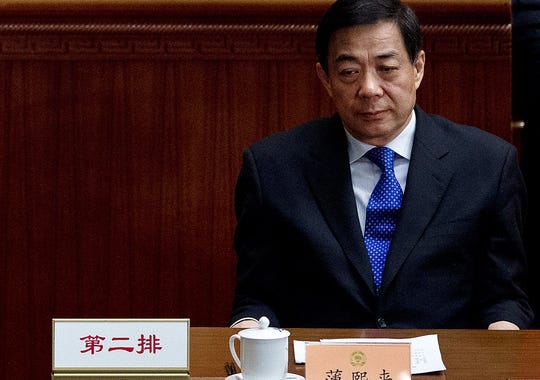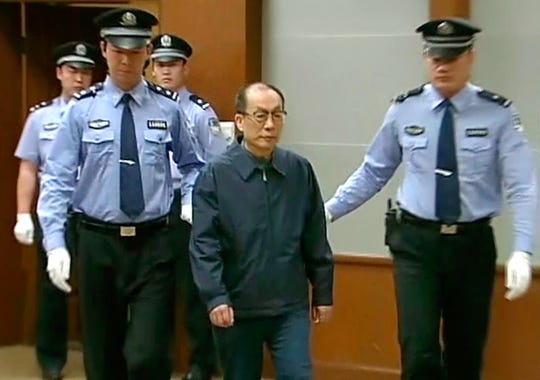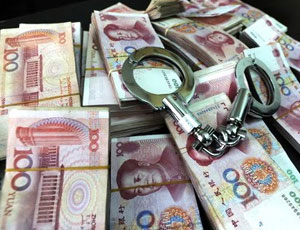.
.
.
The Communist Party in Beijing has been successful in steering China to the number 1 position, a little sooner than anticipated through great leadership, the hard work of the Chinese people and the help of some well wishers in the Western Hemisphere.
1. Unlike the Soviet Union there were no silly gimmicky Glasnost and Perestroika that eventually sabotaged the Soviet economy, helped by the International Jews. Chinese reform has been gradual, slow and meaningful, without the upheavals of sudden state decisions under the unstable Cultural Revolution..
2. The opening up of the country to foreign investment, and facilitating extensive EPZ's in the coastal regions of China.
3. The USA's willingness to allow China to have MFN status, and trade imbalance with the country that heavily favors China with trade worth over $600 billion. The USA's biggest trading partner......is not Israel, The UK or Germany, or Japan...but China.
4. The gradual acceptance since 1972 that the USA could trade with China, and open an embassy there to reinforce that fact.
5. The adoption of a less hostile posture against China by the USA, since 1972.
6. The passing of the erratic unstable revolutionary years under Mao, and the Gang of Four.
7. The focus of China on DEVELOPMENT......rather than SECURITY and IDEOLOGY.
8. Heavy concentration on planned development which focused on INFRASTRUCTURE and INDUSTRY.
HOWEVER, all is not perfect and there are two main problem areas for the $18 trillion PPP GDP economy:
First and foremost is corruption, against which the Communist Party has taken a strong stand.........as the article below testifies..........and second, the opaque financial structure of China with many a bad loans involved, by the banking system in China.
No doubt the Party will focus on these areas and sort them out.
From Wikipedia:
"China suffers from widespread corruption. For 2013, China was ranked 80th out of 178 countries in Transparency International's Corruption Perceptions Index, on par with Serbia and Trinidad and Tobago, ranking less corrupted with tied countries Burkina Faso, El Salvador, Jamaica, Panama, and Peru, but more corrupted than Sri Lanka and most developed countries. Means of corruption include graft, bribery, embezzlement, backdoor deals, nepotism, patronage, and statistical falsification.[1]
.
Cadre corruption in post-1949 China lies in the "organizational involution" of the ruling party, including the Chinese Communist Party's policies, institutions, norms, and failure to adapt to a changing environment in the post-Mao era[2] caused by the market liberalization reforms initiated by Deng Xiaoping. Like other socialist economies that have gone through monumental transition, such as post-Soviet Eastern Europe and Central Asia, post-Mao China has experienced unprecedented levels of corruption,[3] making corruption one of the major hindrances to the PRC's social and economic development.
Public surveys on the mainland since the late 1980s have shown that it is among the top concerns of the general public. According to Yan Sun, Associate Professor of Political Science at the City University of New York, it was corruption, rather than democracy as such, that lay at the root of the social dissatisfaction that led to the Tiananmen protest movement of 1989.[3]
Corruption undermines the legitimacy of the CCP, adds to economic inequality, undermines the environment, and fuels social unrest.[4]
Since then, corruption has not slowed down as a result of greater economic freedom, but instead has grown more entrenched and severe in its character and scope. Business deals often involve participation in corruption.[5] In popular perception, there are more dishonest CCP officials than honest ones, a reversal of the views held in the first decade of reform of the 1980s.[3] China specialist Minxin Pei argues that failure to contain widespread corruption is among the most serious threats to China's future economic and political stability.[4] Bribery, kickbacks, theft, and misspending of public funds costs at least three percent of GDP. China, though not a member of the OECD has participated as an observer in the OECD Working Group on Bribery in International Business Transactions, see OECD Anti-Bribery Convention."
_______________________________________________
China sets up permanent teams to monitor corruption

Zhou Yongkang, China’s former domestic security chief was arrested and expelled from China’s Communist Party in early December for "serious disciplinary violation."
By Presstv.com
China’s
Communist Party has announced that it will initiate permanent offices in
major government and party departments to closely watch for potential
cases of corruption.
.

The corruption watchdog in the party has announced that the special
anti-graft teams will be stationed in the cabinet office and the
parliament. The organization department of the Communist Party will also
see one such unit placed in its main office..

.

China has started a sweeping anti-corruption campaign by sending various monitoring teams across the country. This would be the first time the government employs special teams in sensitive, powerful departments of the administration.
.

Chinese President Xi Jinping has repeatedly said that he is serious in his fight against corruption as it threatens the very survival of the ruling Communist Party.
.

China’s anti-graft campaign gained a fresh momentum last week when Zhou Yongkang, the former domestic security chief, was arrested for accepting bribes and leaking state secrets.
.

A Chinese court on Wednesday sentenced a former high-ranking official to life in prison for taking almost USD 5.8 million in bribes.










